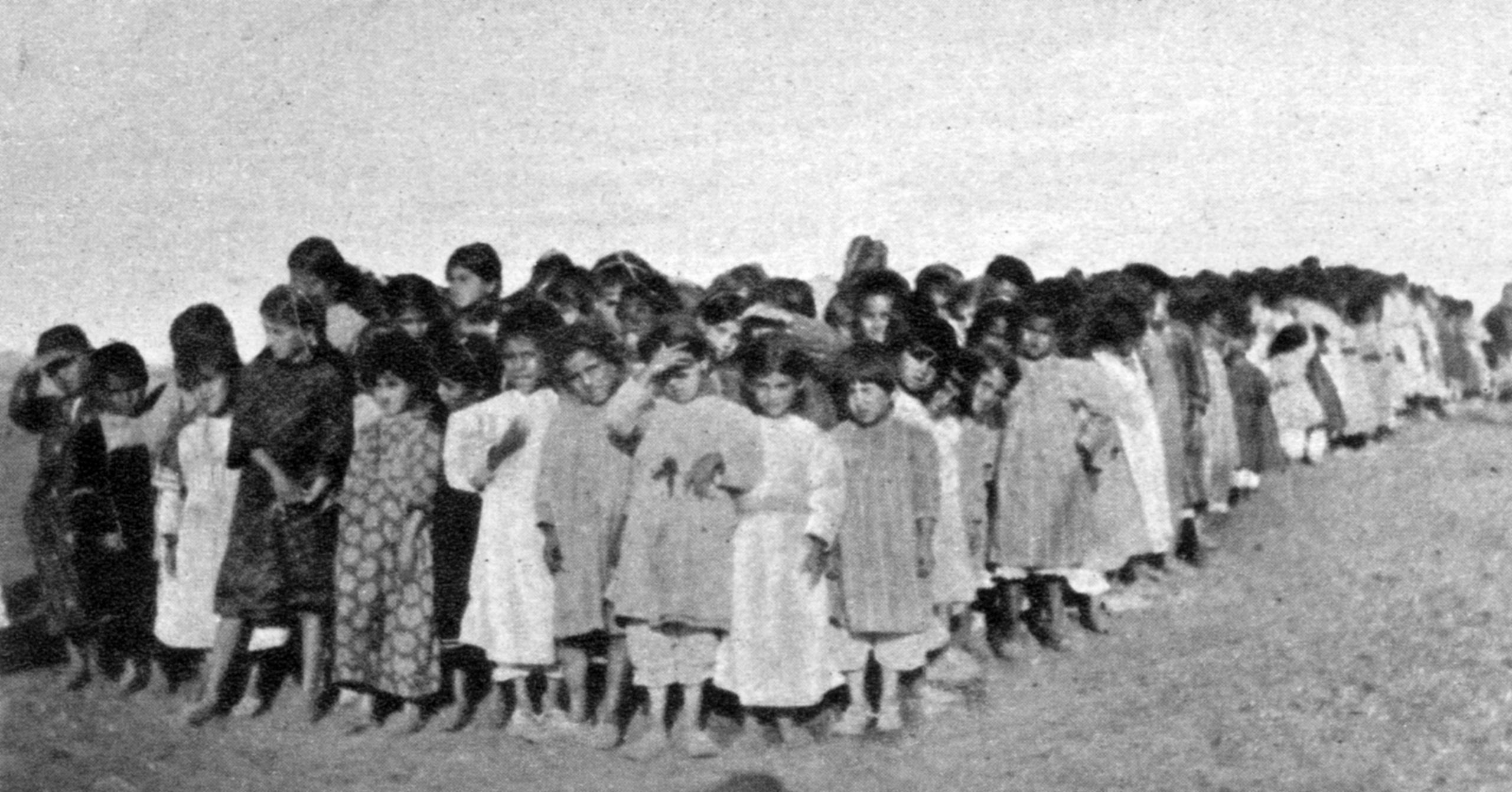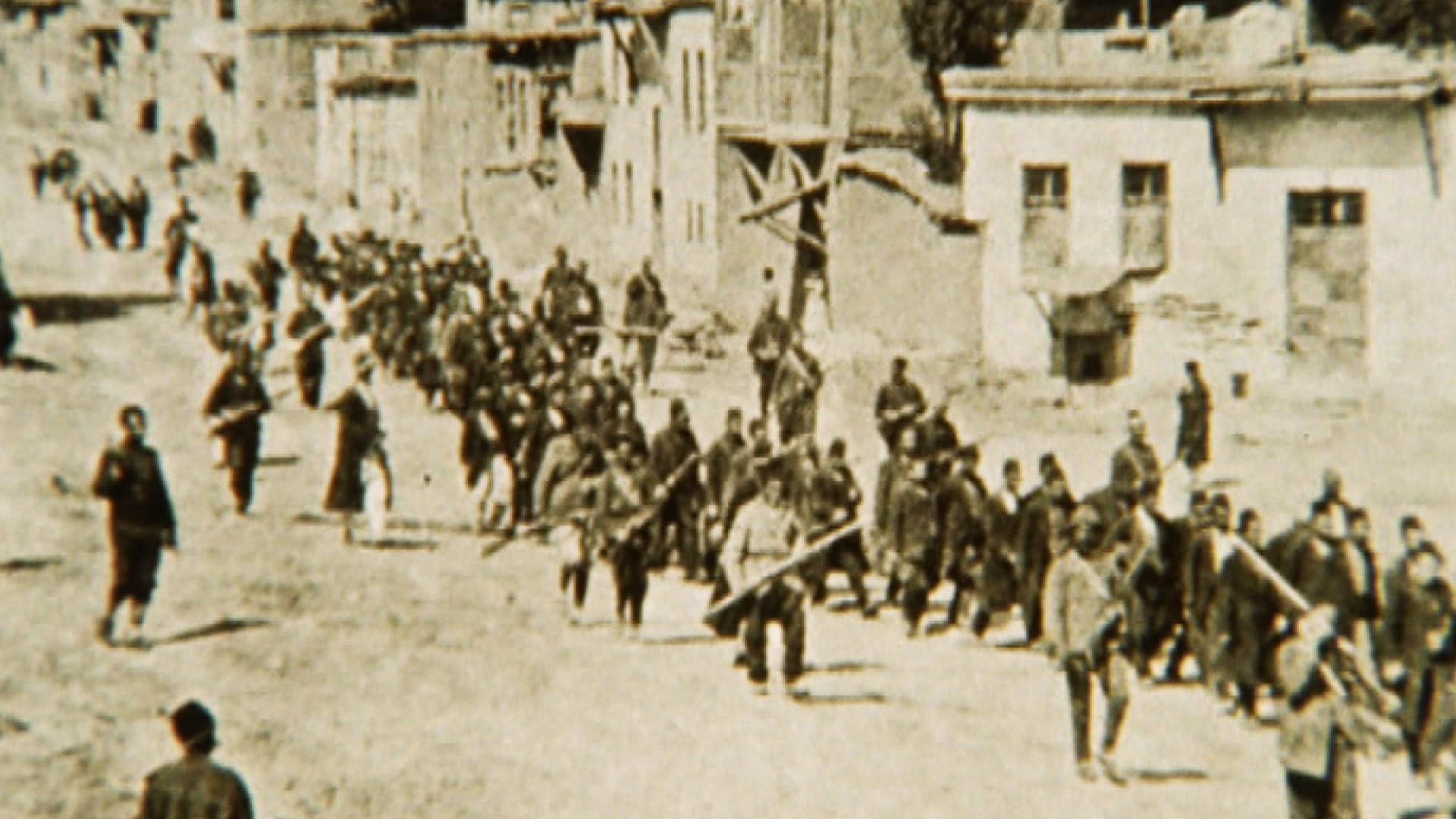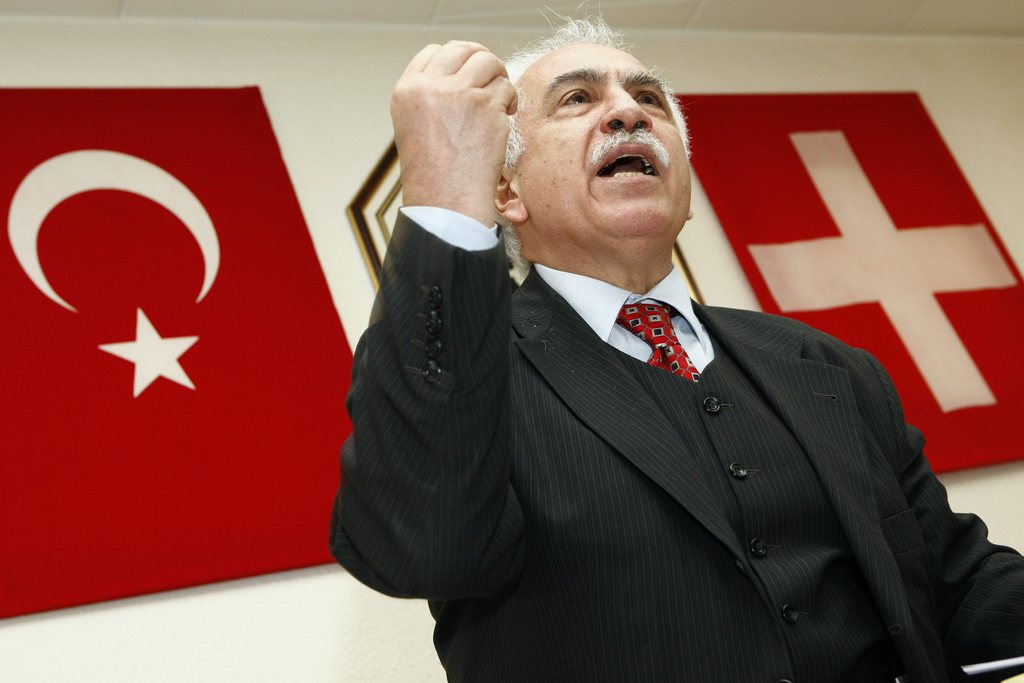Swiss keep low profile on Armenian genocide

Several high-level delegations will take part in the centenary commemoration of the Armenian genocide in Yerevan but Switzerland will be represented only by its ambassador. This, along with a stalemate over a victims’ memorial in Geneva, has angered Armenians in Switzerland.
“The Armenians of Switzerland are deeply shocked and outraged by the behaviour of the Swiss cabinet. They condemn this capitulation to the Turkish state’s overt blackmail of our institutions.”
Published two days before the centenary commemoration of the Armenian genocide that began on April 24, 1915, the communique questions the absence of a Swiss cabinet minister at the event where heads of state like Vladimir Putin and François Hollande will be present.
Besides the Swiss ambassador, a ten-member delegation led by parliamentarians Dominique de Buman and Ueli Leuenberger – co-presidents of Swiss-Armenian parliamentary group – will represent the Swiss people, a move welcomed by the Armenian diaspora.
Swiss mediation
When questioned about its nominal presence at Yerevan, the foreign ministry referred swissinfo.ch to a press releaseExternal link regarding the event:
“This is in keeping with the Federal Council’s [cabinet’s] tradition of participating with the appropriate restraint and discretion in commemorations of international historic events,” it states.
This justification is contested by Swiss Armenians who point to the participation of foreign minister Didier Burkhalter in the commemoration last year of the liberation of the Auschwitz camp in his capacity as the Swiss president.
“He had notably proclaimed that nobody has the right to deny genocide,” states the Armenian communique.
In his speechExternal link, Burkhalter spoke out against Holocaust denial:
“Yet there are still some today who deny the extent of the Holocaust, or even the very fact that it took place, just as they deny the extent of the other crimes committed by the Nazis and of other genocides. It is our duty to reject this attitude and to counter it by reminding people of the facts, of the historical reality and the atrocities committed during the Holocaust.”
For its part, the foreign ministry reiterates that it will continue to work towards a normalisation of relations between Turkey and Armenia.
“One of the provisions of the Zurich Protocols of 2009 envisions the establishment of a joint commission of independent historians from both countries tasked with re-examining these tragic events,” it states.
The same statement also mentions that the cabinet has “condemned on a number of occasions the tragic events of 1915 which led to the death of a very large number of Armenians, between several hundred thousand and 1.5 million depending on the source”.
The sources in question are two different entities. One, is the Turkish government, that talks of a civil war coupled with a famine, in which 300-500,000 Armenians and as many Turks lost their lives. The other source is the vast majority of historians who have established the veracity of the genocide – the massacres and deportations methodically planned by Ottoman Turks – that led to the death of 1.5 million Christians, the majority of whom were Armenian.

More
Anniversary of wartime slaughter of Armenians
Multiple evidence of genocide
“The evidence of the genocide can be traced back to the genocide itself, with a large number of documents, survivor testimonies, and diplomatic records of not just Allied powers during the First World War, but also countries that supported Turkey such as Germany and Austria-Hungary,” says Vicken Cheterian, professor at the Webster University in Geneva, whose latest bookExternal link addresses exactly this issue.
“It’s unfortunate that even after a 100 years we don’t have the courage to call these events a genocide,” he adds. “If this is the case, what purpose do all these history chairs serve?”
Still, the Swiss cabinet’s position is similar to that of a number of Western governments that do not specifically use the term genocide. Several countries, including Austria, will also be represented only by an ambassador at the commemorations.
Memorial stalemate
The Armenians of Switzerland are particularly annoyed at the cabinet and foreign ministry for their intervention against the construction of a memorial near the United Nations. It was meant to pay tribute to the victims of the Armenian genocide victims and serve as a symbol of a century of Swiss solidarity for them.
Dubbed the “Streetlights of Memory”, the work features teardrops falling from lampposts. Ten years after its creation, the project is still scouting for a location in Geneva. The stalemate is due to the written intervention of Burkhalter on December 8, 2014, in response to the Geneva canton’s request for the government’s position on the memorial project.
In a written response to swissinfo.ch, the foreign ministry states that the monument could affect Geneva’s image as an ideal host for international organisations.
“In his letter, Mr. Burkhalter emphasised the importance of International Geneva for Switzerland and the need to preserve a peaceful and impartial environment that allows international organisations to fulfil their duties under the best possible conditions. In this context, agreeing to erect a controversial monument like the Streetlights of Memory in the immediate vicinity of the Palais des Nations, which is located at the heart of the diplomatic community, would weaken the position of International Geneva taking into account the increased competition between host cities. “
This intervention is too much for Stefan Kristensen, coordinator of the memorial project.
“Basically, Didier Burkhalter is showing the same level of caution as his predecessor,” he says. “But taking such a strong position is unheard of. “
Yesterday’s genocide, today’s massacre
“It is absurd to allow Turkey to intervene in Switzerland’s internal affairs,” says Cheterian. “We know that Turkey make a lot of noise on this issue. But if we remain firm, Turkey has no choice but to accept. “
He recalls that the Swiss house of representatives recognised the Armenian genocide in 2003.
“Ankara reacted angrily and recalled its ambassador,” he says. “But three years later, Turkey looked to Switzerland to mediate between Ankara and Yerevan. “
On Thursday, the Turkish embassy welcomed the foreign ministry’s position on the Yerevan commemoration.
“First of all, it must be emphasised that this decision [to represent Switzerland in Yerevan with an ambassador] by the Swiss federal authorities was taken after evaluating different aspects of the issue,” an embassy representative told swissinfo.ch. “We also appreciate the fact that Switzerland continues to work for the normalisation of relations between Turkey and Armenia.”
The embassy also shared its views on the controversial memorial project.
“Such a memorial project will hurt the sensitivity of Swiss citizens of Turkish origin, whose number around 130,000. They have made their legitimate objections known to the Swiss authorities on several occasions. In addition, the UN authorities have never been favourable towards the construction of such a monument near the United Nations. “
According to Cheterian, Switzerland wants a policy based on human rights and peaceful resolution of conflicts. But he cautions that if we don’t practise what we stand for, this policy can only be described as hypocritical.
“When it is convenient, we talk about human rights,” he says. “When it has a cost, we don’t have the courage to stand up for our values.”
For Cheterian, the Armenian genocide question is not merely academic.
“The denial of the Armenian genocide has poisoned the political culture of the Middle East, and also the rest of the world, that has turned a blind eye after the 1923 Treaty of Lausanne.”
Cheterian also insists that the Armenian genocide has repercussions on current events across the world.
“There is a continuity between the events of 1915 and the ongoing massacres by jihadists who continue to view the Christian communities of the East as foreigners, even though they were established there before the arrival of the Turks from Central Asia and before the emergence of Islam.”
Translated from French by Anand Chandrasekhar

In compliance with the JTI standards
More: SWI swissinfo.ch certified by the Journalism Trust Initiative











You can find an overview of ongoing debates with our journalists here . Please join us!
If you want to start a conversation about a topic raised in this article or want to report factual errors, email us at english@swissinfo.ch.